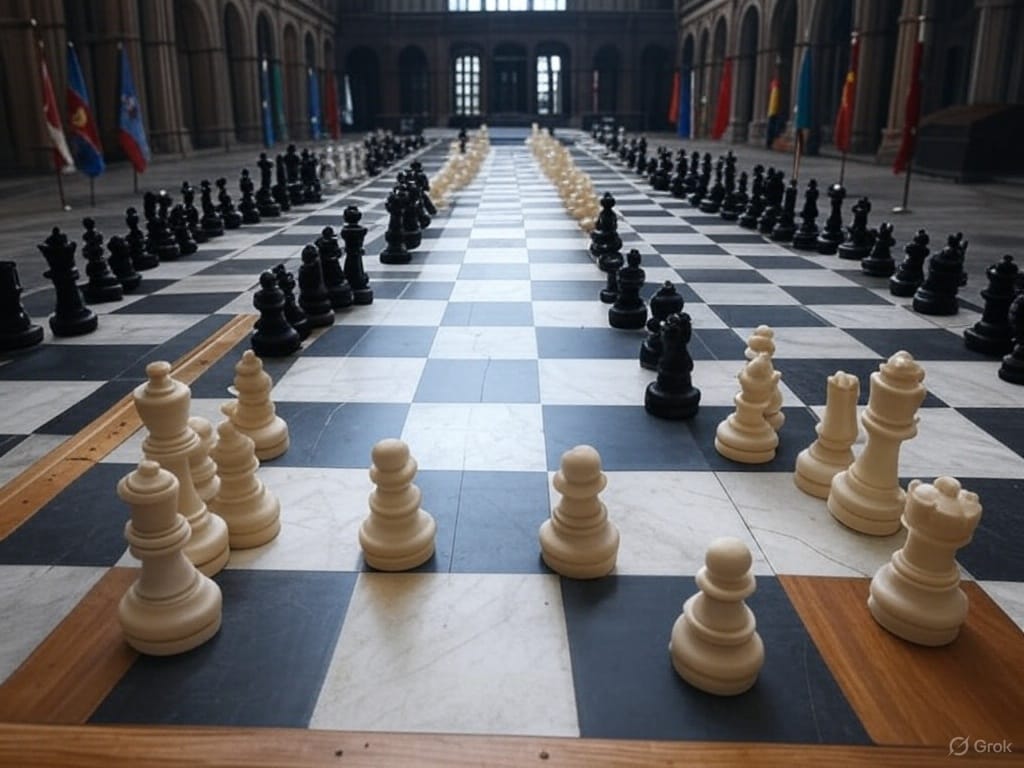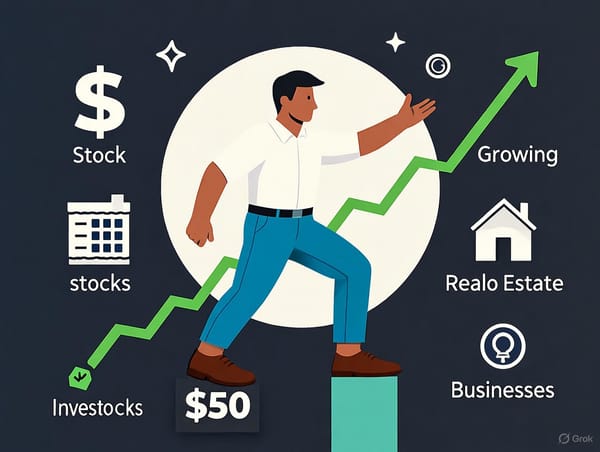Geopolitics & History
To thrive in a world shaped by geopolitics and historical patterns, we must understand the forces at play, adapt with purpose, and act with confidence.

In an era of rapid change and interconnected crises, it’s easy to feel overwhelmed by forces that seem distant yet somehow dictate the rhythm of our lives. Wars flare up on the other side of the globe, economic policies shift in far-off capitals, and ancient rivalries resurface to redraw borders we thought were fixed. These are the threads of patterns and powers that shape our reality whether we acknowledge them or not. To thrive in such a world, we must see the big picture, recognize the forces at play, and learn to adapt with purpose and confidence. This isn’t about predicting the future with certainty; it’s about equipping ourselves to meet it head-on.
What Is Geopolitics, Really?
Geopolitics is the study of how geography, power, and human ambition collide to influence global events. It’s the invisible hand guiding why nations rise or fall, why resources spark wars, and why certain regions remain flashpoints for centuries. Think of it as a chessboard where the pieces—nations, alliances, and ideologies—move not just based on strategy but also on the terrain they occupy. Mountains, rivers, and coastlines aren’t just scenery; they’re strategic assets or liabilities that have shaped history as much as any king or president.
Take the Middle East as an example. Its position as a crossroads between Europe, Asia, and Africa, combined with its vast oil reserves, has made it a geopolitical hotspot for over a century. The 20th century saw colonial powers carve up its borders, and today, superpowers and regional players vie for influence over the same sands. Geography doesn’t change, but the stakes do—and understanding this helps us see why tensions there rarely fade.
Geopolitics isn’t just about physical space, though. It’s also about the ideas and systems that humans layer onto it. Democracy versus authoritarianism, capitalism versus socialism—these ideological battles play out on the global stage, often fueled by historical grudges or ambitions. To grasp geopolitics is to see how these tangible and intangible forces intertwine, creating the world we wake up to each day.
The Weight of Historical Patterns
History isn’t just a dusty textbook; it’s a map of how we got here and a hint at where we’re headed. Patterns repeat—not because humans lack originality, but because we’re bound by the same needs and flaws. Empires overextend and collapse. Economic booms breed complacency, then busts. Revolutions ignite when inequality festers too long. These aren’t random events; they’re cycles, and spotting them gives us a lens to interpret the present.
Consider the fall of Rome. Overexpansion, internal corruption, and external pressures from “barbarian” tribes didn’t just end an empire—they set a template. Centuries later, the British Empire faced its own unraveling, stretched thin across colonies and battered by two world wars. Today, some argue the United States is testing the same limits, with global commitments straining its resources while rivals like China and Russia probe for weaknesses. History doesn’t repeat verbatim, but it rhymes—and those rhymes are loud if you listen.
Historical context also reveals why some conflicts feel eternal. The Israel-Palestine struggle, for instance, isn’t just about 20th-century politics; it’s rooted in millennia of competing claims to the same sacred land, layered with colonial meddling and Cold War proxy games. Without that backstory, today’s headlines are just noise. With it, they become a chapter in a much longer saga.
Why the Big Picture Matters
So why should you care about geopolitics and history when your daily life is consumed by work, bills, or the next streaming binge? Because those “personal” concerns don’t exist in a vacuum. The price of gas at your pump spikes when tensions flare in the Persian Gulf. Your job security wavers when trade wars disrupt supply chains. Even the culture wars on your social media feed echo ideological fault lines that stretch across borders and centuries.
Seeing the big picture doesn’t mean you can stop these forces—most of us can’t reroute a river or rewrite a peace treaty. But it does mean you can anticipate them. When you know a storm’s coming, you don’t just stand in the rain—you build a shelter. Awareness of global events and historical trends lets you prepare for what’s next, whether that’s a recession sparked by distant tariffs or a societal shift driven by demographic change.
This isn’t about paranoia or doomscrolling X for the latest crisis. It’s about clarity. When you understand why Russia’s annexation of Crimea in 2014 rattled Europe, or how China’s Belt and Road Initiative is reshaping Asia, you’re not just a bystander—you’re a participant with a stake in the outcome. Knowledge becomes power, not to control the world, but to navigate it.
Adapting to Forces Beyond Your Reach
Adaptation is the practical payoff of this awareness. History and geopolitics teach us that change is relentless—empires fade, alliances shift, and yesterday’s superpower becomes tomorrow’s cautionary tale. The trick is not to resist the inevitable but to bend with it. This might mean rethinking your career if automation and globalization upend your industry, or diversifying your investments when currency wars loom. On a personal level, it could be as simple as learning new skills to stay relevant in a world that doesn’t stand still.
Look at how nations adapt. Germany, once shattered by World War II, pivoted to become an economic powerhouse by leveraging its industrial base and European integration. Japan, facing a shrinking population, invests heavily in robotics to sustain its economy. These are lessons in resilience—acknowledging the hand you’re dealt and playing it smartly. Individuals can do the same, whether it’s moving to a city less vulnerable to climate change or building a network that spans unstable borders.
Adaptation also means letting go of illusions. If history shows anything, it’s that no one stays on top forever. Clinging to the status quo—whether it’s a nation’s dominance or your own comfort zone—only delays the reckoning. The sooner you accept that the world shifts under your feet, the sooner you can find solid ground.
Acting with Confidence
Awareness and adaptation aren’t enough on their own—they need to fuel action. Confidence comes from knowing you’ve done the work to understand your reality, not from blind optimism. When you see how past societies survived upheaval, or how today’s leaders maneuver through crises, you gain a playbook for your own decisions. You’re not just reacting; you’re choosing.
This might look like voting with an eye on long-term trends, not just short-term promises. Or it could mean speaking up when you see echoes of historical mistakes—like unchecked power or divisive rhetoric—creeping into your community. Confidence doesn’t mean you have all the answers; it means you trust yourself to face the questions.
On a global scale, confident action is what separates thriving nations from faltering ones. Look at how small countries like Singapore punch above their weight—geopolitical savvy and historical lessons turned into policy. You don’t need to run a country to borrow that mindset. Start where you stand, with the choices you can make.
The Road Ahead
Geopolitics and history aren’t abstract concepts for scholars—they’re the currents that carry us all. The world is one of flux: great powers jostle, climate pressures mount, and technology races ahead of our ability to govern it. But this isn’t new. Humans have faced upheaval before, and those who thrived were the ones who looked up from their daily grind to see the horizon.
So take the time to study the map—both the one drawn by borders and the one etched by time. Recognize the forces beyond your reach, not to feel powerless, but to find your footing. Then act, not out of fear, but with the steady resolve of someone who knows the game and plays it well. The big picture isn’t just a view—it’s a tool. Use it.





